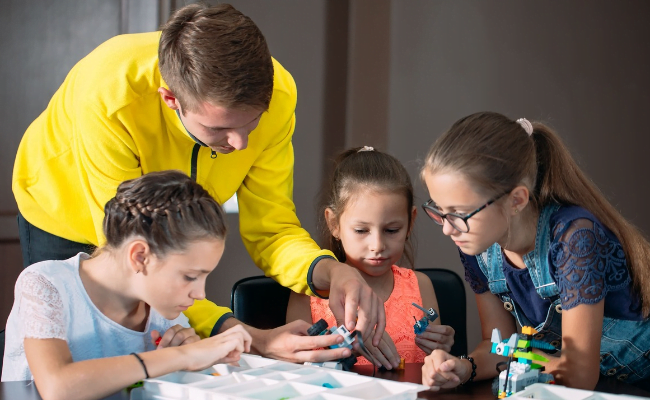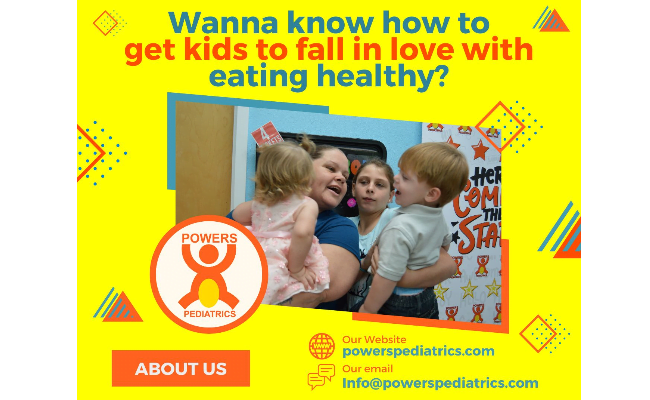Hey there! Do you remember your first day at school? The rush of emotions, the playground interactions, the first time you shared your lunch, or maybe that squabble over toys? I bet you do! What made those memories possible? If you guessed social skills, you’re on the money! Today, let’s dive deep into the importance of social skills for children and why they’re pivotal in shaping their future.
The Importance of Social Skills for Children
Academic performance often takes center stage when we talk about child development. However, the value of social skills in a child’s life is undeniable. Let’s take a deeper look into these pillars and why they’re so essential:
Mental Health and Social Skills
Connection to Well-being:
A child’s mental health is intricately linked to their ability to socialize. Having well-developed social skills provides children with the tools they need to communicate, share feelings, and seek support. These interactions can act as a safety net, reducing feelings of loneliness or sadness.
Reducing Isolation:
Children with strong social skills find it easier to make connections. This ensures that they rarely feel isolated. Imagine being in school and always having a friend to share lunch with or discuss the latest game. That’s the power of strong social skills.
Boosting Happiness:
Navigating the social world with ease leads to positive experiences. The joy of being included in a game, understanding others, and expressing one’s emotions can significantly boost a child’s happiness quotient.
Positive Relationships and Their Foundation
Childhood Friendships:
Think back to your own early friendships. Weren’t they a blend of understanding facial expressions, practicing turn-taking, and indulging in pretend play? These are all key aspects of social skills. They form the foundation for childhood friendships, which are integral in a child’s social development.
Interacting with Adults:
It’s not just about peers. A child’s interaction with adults, whether it’s family members or teachers, is also shaped by their social skills. Understanding personal space, making eye contact, and good communication ensures they form positive bonds with older individuals as well.
Academic Success Through Social Skills
Teamwork and Cooperation:
In a school setting, children are often tasked with group projects. Those with well-honed social skills find it easier to cooperate, delegate tasks, and ensure the team’s success.
Following Directions:
Teachers, as you may recall, give a plethora of instructions. Children who can effectively communicate, ask questions when in doubt, and understand cues can follow directions more efficiently. This directly translates to better academic performance.
Problem Solving:
Many children face challenges, both academic and personal. With strong social skills, they can discuss issues, seek advice, and brainstorm solutions, leveraging their social world for academic success.
Social Skills: The Building Blocks for Life
Life-long Development:
From the sandbox in early childhood to job interviews in young adulthood, social skills are always at play. These skills allow children to evolve, adapting to various social situations and challenges they face at different life stages.
Understanding and Adapting:
As children develop, their social world expands. New schools, meeting other kids, understanding different cultures, and even the virtual world of social media come into play. Well-developed social skills ensure they can understand, adapt, and thrive in these diverse environments.
Invaluable Lessons:
Each social interaction offers a lesson. Whether it’s learning the importance of patience while waiting for one’s turn or the value of empathy when a friend is upset, these skills are the building blocks for life’s essential teachings.
Social Skills: What Are They Exactly?
The term “social skills” is often tossed around, but it’s so much more than just the ability to strike up a conversation. Let’s delve deeper into the multifaceted world of social skills.
Communication Beyond Words
The Power of Non-Verbal Communication:
It’s said that over 90% of our communication is non-verbal. When we teach our children the art of conversation, we often overlook this significant part. Making eye contact is crucial for many children, especially during meaningful conversations. It portrays attentiveness and sincerity.
Decoding Body Language:
Understanding body language can be likened to understanding a foreign language. It’s nuanced, and it’s rich with meaning. Children who grasp this can interpret feelings and moods, even if no words are spoken. For instance, recognizing a friend’s slumped shoulders as a sign of a bad day.
Healthy Communication Practices:
Good communication is a two-way street. It’s about listening as much as it is about talking. Encouraging children to be active listeners ensures they grasp the nuances of conversations and respond empathetically.
Emotional Skills: Navigating the Heart
Understanding One’s Emotions:
Children often feel a whirlwind of emotions. Recognizing and managing one’s own emotions is a cornerstone in their emotional development. It’s about acknowledging feelings, whether it’s joy, anger, or sadness, and understanding what triggers them.
Appropriate Emotional Responses:
Every situation warrants a different emotional response. Social-emotional learning teaches children to behave appropriately, even amidst a flurry of emotions, ensuring they handle challenging social situations gracefully.
Understanding Personal Space: Respecting Boundaries
Why is Personal Space Important?:
Ever felt someone invading your bubble? It’s disconcerting. Teaching children the concept of personal space ensures they give others comfort and respect for distance. It’s about understanding boundaries, both their own and others.
Practical Lessons on Space:
Simple activities like standing in a queue or waiting for their turn during play can instill in children the significance of giving others their space.
Cooperation Skills and Turn-Taking: The Art of Sharing
Team Dynamics:
Cooperation skills are vital in team settings. Be it a science project at school or a basketball game in the park, children learn the value of every team member’s contribution.
Learning Patience:
Turn-taking teaches children patience and fairness. Whether they’re waiting for their turn on the swing or listening during a classroom discussion, it’s an essential skill for harmonious interactions.
Conflict Resolution: Building Bridges
Disagreements are Natural:
Children, much like adults, won’t always see eye to eye. Disagreements, be it with siblings or friends at school, are a natural part of their world.
Finding Solutions:
However, children with strong skills don’t just focus on the problem; they seek solutions. They learn to use appropriate strategies to address issues, ensuring disagreements don’t escalate but instead lead to understanding and compromise.
Child Development and Social Skills
Child development isn’t just about growing taller or mastering physical skills. It encompasses cognitive abilities, emotional growth, and of course, the development of social skills. Let’s look at a few stages of a child’s social skill development:
- Young Kids: For a young child, social interactions are often centered around play. Pretend play, role play, and basic social skills like sharing, taking turns, and making friends become central.
- School-aged Children: When children step into the school environment, they face a multitude of social settings. Here, it’s crucial for them to understand group dynamics, form healthy friendships, and navigate the school social world.
- Older Children: As kids grow, they face more complex social situations. Their ability to form positive relationships, practice conflict resolution, and understand social dynamics becomes even more critical.
How Can We Teach Social Skills?
Ah, the golden question! How do we teach social skills to our kids? It isn’t as hard as you might think:
- Modeling: Children learn by observing. So, show them! Practice what you preach. Display positive interactions, understanding, and empathy in your own family.
- Role Play: Allow children to enact various scenarios. It helps them understand different perspectives and find solutions.
- Positive Reinforcement: Immediate praise or rewards when they demonstrate good social behavior can work wonders. It instills a positive attitude towards developing these skills.
- School and Therapeutic Interventions: Sometimes, children may need a structured environment to develop social skills. Schools, with structured activities and programs, play a crucial role. Additionally, interventions like occupational therapy can help tailor strategies to individual needs.
The Magic of Well-Developed Social Skills
What happens when a child has well-developed social skills?
- Boosted Self-Esteem: Children feel confident in social interactions, leading to a better self-image.
- Improved Mental Capacity: Their cognitive abilities are enhanced as they can effectively solve problems and handle challenges.
- Healthy Relationships: They can form and maintain positive relationships with peers, family members, and others.
- Success in Various Settings: Whether it’s school, sports, or other extracurricular activities, children with robust skills excel.
There you have it! The marvelous world of social skills is laid out for you. As an editor-in-chief or a parent reading this, remember that children are our future. Let’s ensure they have all the tools they need, especially the social ones, to create a bright tomorrow.
Unlock Your Child’s Social Potential with Powers Pediatrics!
Empowering your child with robust skills is just a step away. At Powers Pediatrics, we’re committed to nurturing well-rounded children. We offer comprehensive developmental guides tailored to nurture these essential skills and improve child development. Why wait? Connect with us today and give your child the blueprint to social success!



